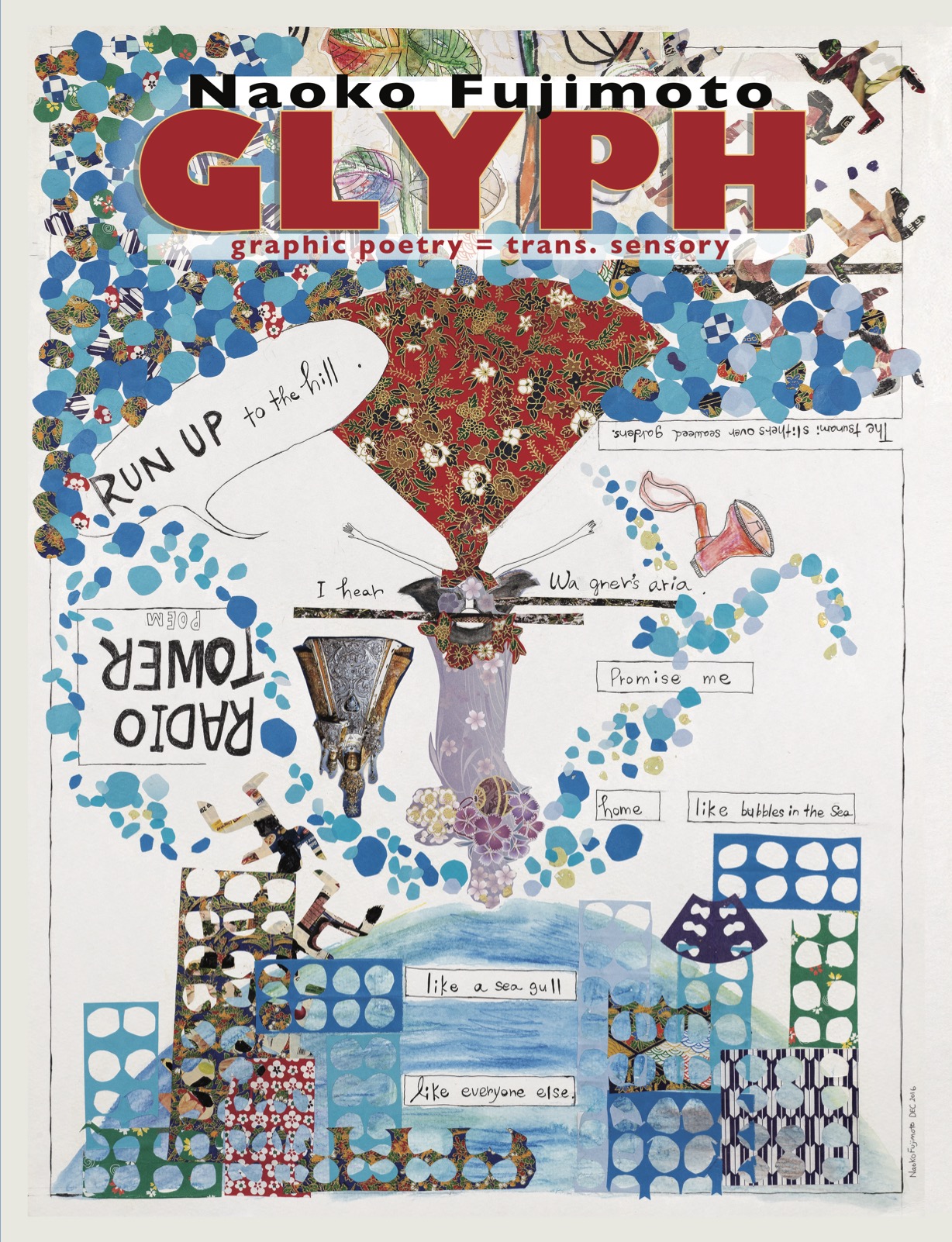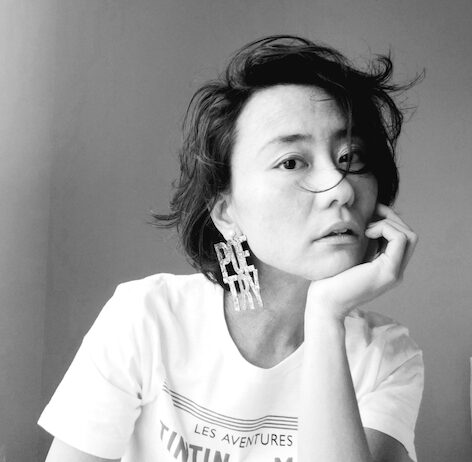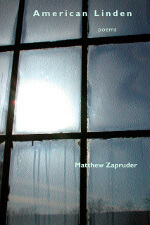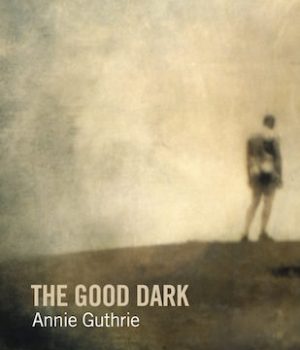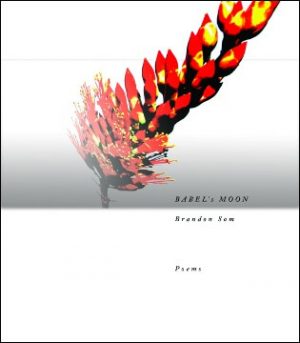Glyph: Graphic Poetry=Trans. Sensory
by Naoko Fujimoto
$21.95
Naoko Fujimoto translates her poems (that are written in English on flat paper) into words and images to create a contemporary picture scroll.
Published: June 2021
Out of stock
“I was wandering around the house of poetry and this book showed me to a door I didn’t know existed. Now, on the other side, nothing is the same. By layering and arranging found art, original drawings, washi, photos, paint, and bits of leaf, Naoko Fujimoto has created a stunning contemporary emaki engaged with Japanese heritage, the horrors of war, and daughterhood, offering us a dynamic accumulation on the page that feels as delightful and devastating as life itself.”
—Gabrielle Bates
“Naoko’s poetry is ‘trans. sensory.’ It relays the work of translating sources, events, emotional revelations, and emotional search parties into text. It is the very demonstration of the pluralizing experience of poetry itself. Where distinct ‘graphic’ practices meet, at the edges of one material and another, a thin veil of blur where one material gives way to the surface of another, we are presented with a strand to sit on and ponder a detail of poetry related to voice: voice demonstrates in registers. Those registers are the coordinates of a geography we often assume to a composed poetic speaker, a composed, dispositive emotional face to accompany the text. The joy of walking inside a kaleidoscope and touching the surfaces we witness only in two dimension reveals emotional disposition to be a process of stages and witnessed events threaded-through by string, paper, color, and breath— all of it mapped together. All of it a living process of the poet, who is no less heroic if not heroically more honest. Why would we seek to simplify poetry’s beauty and complexity and richness into a plain white page and marginalized text? I’d rather smell the vision of ‘trembling camphor trees,’ let them haunt me, and share the work of making poetic sense of human sinew, mnemonic echoes, and textural gestures. I am comforted by the face of poems like ‘Drinking Poem’ or ‘Foreign / Grey’ in this collection, which console my efforts at hearing poetry with the reminder that a poet must too also work, and care, and persuade the poem from a four-dimensional world, and from all those marvelously experiential, sensory hiding places. What Naoko works when they hold, turn, and consider the personal before handing it back transformed into the world from which it came is what we see and hear in these poems, these trans. sensory dioramas that are more than simply pages of a book, but environments of a memory translated from a historical world, and given back to our minds to consider, to turn, to feel.”
— José Felipe Alvergue
Naoko Fujimoto translates her poems (that are written in English on flat paper) into words and images to create a contemporary picture scroll. The picture scroll in Japanese is Emaki (eh-MA-kee) and the style has been popular since the 7-16th centuries in Japan. It is still a widely recognized art style in Japan and the rest of the world. Emaki is akin to a current graphic novel / poetry / comic. One of the most famous Emaki is the Tale of Genji, which is a fictional (perhaps gossip) story about a handsome son of the emperor. The graphic poetry project is also meant for the viewer to transport their senses from the flat paper and bridge the gap between words and images that will connect with their physical counterparts. Like a historical Emaki, there are side stories hidden behind some of the main graphic narratives– be they comedic or serious– for audiences to interpret. All of the details (choice of words, origami paper, or styles) have a specific meaning to contribute to the whole. Graphic Poetry is Trans. Sensory.
Additional information
| Weight | 0.5 lbs |
|---|---|
| Dimensions | 8.5 × 11 in |

